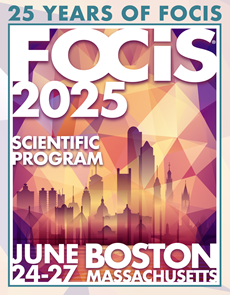Immuno-engineering and Cellular Therapies
Session: Immunoengineering and Therapeutics
Chemokine-engineered CAR-T Cells for Autoimmunity: Multiplexed mRNA Technology for Improved Mode of Action and Safety
Thursday, June 26, 2025
6:10pm - 6:25pm East Coast USA Time
Location: Salons F-G
Samira Picht – BIH Center for Regenerative Therapies – Berlin Institute of Health at Charité Universitätsmedizin Berlin; Lisa Hemmerling – BIH Center for Regenerative Therapies – Berlin Institute of Health at Charité Universitätsmedizin Berlin; Antonia Klaas – BIH Center for Regenerative Therapies – Berlin Institute of Health at Charité Universitätsmedizin Berlin; David Simon – Department of Rheumatology and Clinical Immunology – Charité Universitätsmedizin Berlin; Arnd Kleyer – Department of Rheumatology and Clinical Immunology – Charité Universitätsmedizin Berlin; Manfred Gossen – Institute of Active Polymers – Helmholtz Zentrum Hereon; Hans-Dieter Volk – Institute of Medical Immunology – Charité Universitätsmedizin Berlin; Gerhard Krönke – Department of Rheumatology and Clinical Immunology – Charité Universitätsmedizin Berlin; Michael Schmueck-Henneresse – BIH Center for Regenerative Therapies – Berlin Institute of Health at Charité Universitätsmedizin Berlin
- ND
Norman M. Drzeniek, MD, PhD
Physician-Scientist (Bioengineering and Rheumatology Fellow)
Charité – University Medicine Berlin, BIH Center for Regenerative Therapies
Berlin, Berlin, Germany
Presenting Author(s)
Abstract Text: Chimeric antigen receptor (CAR)-T cells have recently emerged as a potential cure for systemic autoimmune diseases but their widespread application in rheumatology is limited by costly manufacturing, poor control over biodistribution and pharmacodynamics and fear of long-term side effects. As the immune reset in autoimmunity does not appear to require long-term CAR-T engraftment, mRNA technology bears the promise for transient CAR-T cell treatments with an improved safety and treatment controllability.
Here, we optimized mRNA delivery to primary human T cells using lipid nanoparticles (LNPs) versus electroporation. We developed CAR-T cells co-expressing mRNA-based CD19-CAR or stable CRISPR/Cas9 CAR knock-in (KI) alongside mRNA-encoded chemokine receptors for deeper B-cell depletion in lymphatic tissues (CCR7) and transient targeting of inflammation (CXCR3A).
Both mRNA transfection methods resulted in effective transfection (>80%) and high T cell viability (>90%). In CRISPR/Cas9-engineered CAR-T cells, CAR-KI rate was >20% and cells could be re-transfected with mRNA 6 days post-KI without significant viability loss. In "mRNA-only" CAR-T cells, co-expression of CAR and chemokine receptor mRNAs could be achieved in 80% of cells upon single treatment and lasted ~3d, whereafter cells assumed their original phenotype.
Transfection with CCR7-mRNA strongly boosted the migration of (CAR-)T cells toward CCL21, a marker of secondary lymphoid organs, while CXCR3A-mRNA increased migration toward the inflammatory mediator CXCL11. Chemokine-engineered CAR-T cells outperformed T cells transfected with CAR only in a combined killing and migration in vitro assay, demonstrating a functional benefit of multiplexed CAR-T cells.
Validation in relevant disease models and transition to GMP-compatible manufacturing are ongoing.
Here, we optimized mRNA delivery to primary human T cells using lipid nanoparticles (LNPs) versus electroporation. We developed CAR-T cells co-expressing mRNA-based CD19-CAR or stable CRISPR/Cas9 CAR knock-in (KI) alongside mRNA-encoded chemokine receptors for deeper B-cell depletion in lymphatic tissues (CCR7) and transient targeting of inflammation (CXCR3A).
Both mRNA transfection methods resulted in effective transfection (>80%) and high T cell viability (>90%). In CRISPR/Cas9-engineered CAR-T cells, CAR-KI rate was >20% and cells could be re-transfected with mRNA 6 days post-KI without significant viability loss. In "mRNA-only" CAR-T cells, co-expression of CAR and chemokine receptor mRNAs could be achieved in 80% of cells upon single treatment and lasted ~3d, whereafter cells assumed their original phenotype.
Transfection with CCR7-mRNA strongly boosted the migration of (CAR-)T cells toward CCL21, a marker of secondary lymphoid organs, while CXCR3A-mRNA increased migration toward the inflammatory mediator CXCL11. Chemokine-engineered CAR-T cells outperformed T cells transfected with CAR only in a combined killing and migration in vitro assay, demonstrating a functional benefit of multiplexed CAR-T cells.
Validation in relevant disease models and transition to GMP-compatible manufacturing are ongoing.

